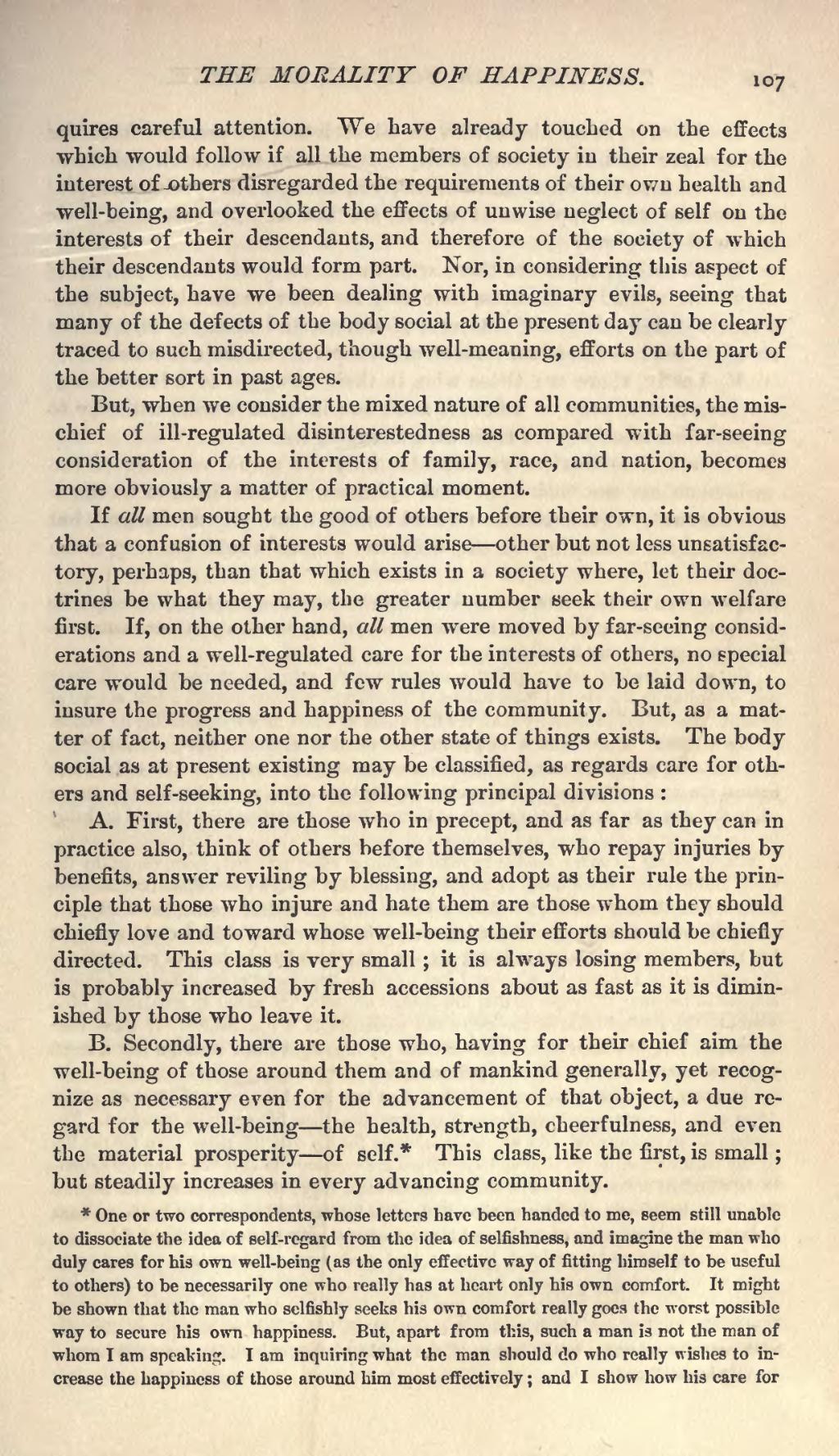quires careful attention. We have already touched on the effects which would follow if all the members of society in their zeal for the interest of others disregarded the requirements of their own health and well-being, and overlooked the effects of unwise neglect of self on the interests of their descendants, and therefore of the society of which their descendants would form part. Nor, in considering this aspect of the subject, have we been dealing with imaginary evils, seeing that many of the defects of the body social at the present day can be clearly traced to such misdirected, though well-meaning, efforts on the part of the better sort in past ages.
But, when we consider the mixed nature of all communities, the mischief of ill-regulated disinterestedness as compared with far-seeing consideration of the interests of family, race, and nation, becomes more obviously a matter of practical moment.
If all men sought the good of others before their own, it is obvious that a confusion of interests would arise—other but not less unsatisfactory, perhaps, than that which exists in a society where, let their doctrines be what they may, the greater number seek their own welfare first. If, on the other hand, all men were moved by far-seeing considerations and a well-regulated care for the interests of others, no special care would be needed, and few rules would have to be laid down, to insure the progress and happiness of the community. But, as a matter of fact, neither one nor the other state of things exists. The body social as at present existing may be classified, as regards care for others and self-seeking, into the following principal divisions:
A. First, there are those who in precept, and as far as they can in practice also, think of others before themselves, who repay injuries by benefits, answer reviling by blessing, and adopt as their rule the principle that those who injure and hate them are those whom they should chiefly love and toward whose well-being their efforts should be chiefly directed. This class is very small; it is always losing members, but is probably increased by fresh accessions about as fast as it is diminished by those who leave it.
B. Secondly, there are those who, having for their chief aim the well-being of those around them and of mankind generally, yet recognize as necessary even for the advancement of that object, a due regard for the well-being—the health, strength, cheerfulness, and even the material prosperity—of self.[1] This class, like the first, is small; but steadily increases in every advancing community.
- ↑ One or two correspondents, whose letters have been handed to me, seem still unable to dissociate the idea of self-regard from the idea of selfishness, and imagine the man who duly cares for his own well-being (as the only effective way of fitting himself to be useful to others) to be necessarily one who really has at heart only his own comfort. It might be shown that the man who selfishly seeks his own comfort really goes the worst possible way to secure his own happiness. But, apart from this, such a man is not the man of whom I am speaking. I am inquiring what the man should do who really wishes to increase the happiness of those around him most effectively; and I show how his care for

